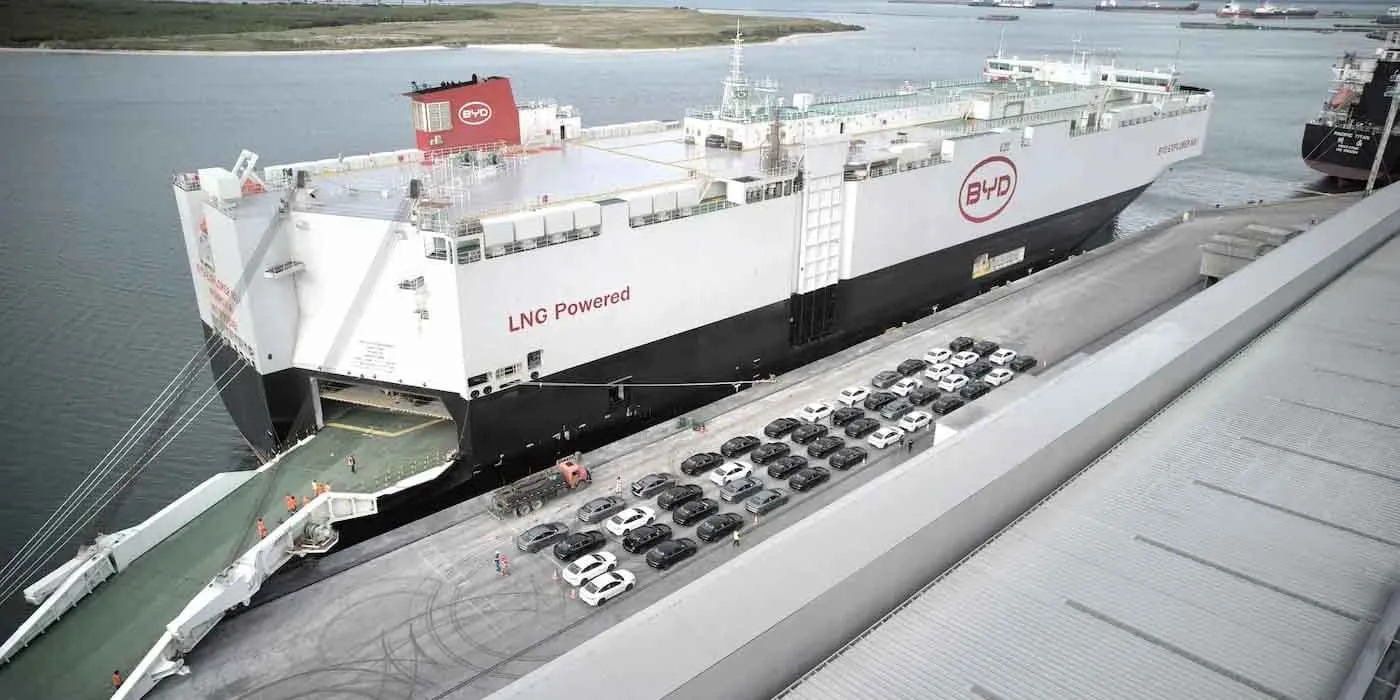
China has reportedly already advised its main automakers to carry off investments in EU nations that supported Europe’s new EV tariffs, in keeping with Reuters.
Whereas China began a bit sluggish within the EV sport, its investments into EV manufacturing have now began to bear fruit, and the nation’s producers have quickly caught up and now handed western automakers, notably on value.
Consequently, each Europe and the US have lately imposed giant tariffs on Chinese language EVs, fearing that Chinese language vehicles will undercut home trade with decrease manufacturing prices. Chinese language EVs are already fairly well-liked in Europe, although only a few promote within the US.
Whereas the EU tariff vote handed handily, the voting patterns amongst nations principally mirrored worry of retaliatory tariffs. As is usually the case with tariffs, a rustic can’t merely impose a restriction with out anticipating any pushback.
For this reason, for instance, Germany voted towards the ultimate tariff regardless of abstaining for the preliminary vote. German automakers do a number of high-margin enterprise in China, and apprehensive that China would not buy their autos both due to retaliatory tariffs or shopper animosity in the direction of international manufacturers (which is already taking place, effectively earlier than these tariff talks).
And China particularly has been fairly efficient up to now at responding to tariffs with focused retaliatory tariffs of its personal. Certainly, they’re already investigating EU dairy and wine merchandise as potential tariff targets.
So it’s no shock that right this moment, on the identical day as EU’s new tariffs went into impact, a report from Reuters says that the Chinese language authorities has advised automakers to consider carefully earlier than investing in Europe, notably in nations that voted in favor of or abstained from the EU’s tariff imposition.
A number of Chinese language automakers are already contemplating constructing factories in Europe so as to localize manufacturing and bypass tariffs, together with BYD, Geely and XPeng. That is form of the meant impact of tariffs – guaranteeing that international automakers will put money into native manufacturing and native jobs.
However China desires to make sure that that funding cash goes to nations that didn’t vote in favor of tariffs. BYD for instance is at the moment constructing a plant in Hungary, a rustic that voted towards the tariffs.
In the meantime, different nations that did vote for the tariffs have tried to get Chinese language companies to put money into constructing factories there, like France and Italy. However this new directive would make their path in the direction of funding harder, if Chinese language companies comply with the federal government’s steering.
That is possible not the one motion that China will absorb response to EU’s tariffs, merely a preliminary one. Nevertheless it does present China’s willingness to swiftly reply to nations imposition of commerce restrictions.
Concurrently, discussions are ongoing between EU and China about a possible minimal pricing deal to keep away from tariffs. The hope was for these to conclude earlier than tariffs had been imposed, however it appears that evidently they should proceed.
Electrek’s Take
As I’ve mentioned many instances earlier than, tariffs on China are usually not the reply to profitable the EV arms race. I believe nations could be a lot better off incentivizing native manufacturing than disincentivizing abroad manufacturing, and all of the messy secondary results that come together with the latter.
Additional, tariffs can usually result in a way of complacency for home producers, who encourage them to allow them to have time to ramp up, after which take that point to slow-roll their ramp in order that they find yourself again the place they began. We noticed this within the 70s with Japan in metal and autos – and the emergency tariffs didn’t forestall 50 years of Japanese export dominance (they had been solely kicked dethroned as #1 auto exporter final yr – by China).
So regardless of the doorway of China onto the worldwide automaker stage, many of the final yr has been characterised by automakers doing their damnedest to decelerate EV adoption. They’re scaling again manufacturing plans regardless of rising EV demand , they’re begging governments to permit them to pollute extra, and so they’re typically not indicating that they’ll use the “time” these tariff impositions have given them correctly.
If this continues, then all Europe will get for its tariffs are a delay of the inevitable. They could nonetheless get some factories, however these factories will likely be owned by international entities as a substitute of native ones. And this may come together with a number of ache for whichever industries China decides to focus on with retaliatory tariffs, and with much less competitors and extra inflation for native shoppers as auto costs are buoyed by these tariffs.
I do know I hold repeating myself (for greater than a decade now…), however the true reply to this may have been to take EVs severely from the get-go, as a substitute of all of the waffling that Western automakers have accomplished that has left them now behind. That ought to have began way back, however because the well-known (presumably Chinese language) proverb says: “the very best time to plant a tree is 20 years in the past, the second finest time is right this moment.”
FTC: We use earnings incomes auto affiliate hyperlinks. Extra.


